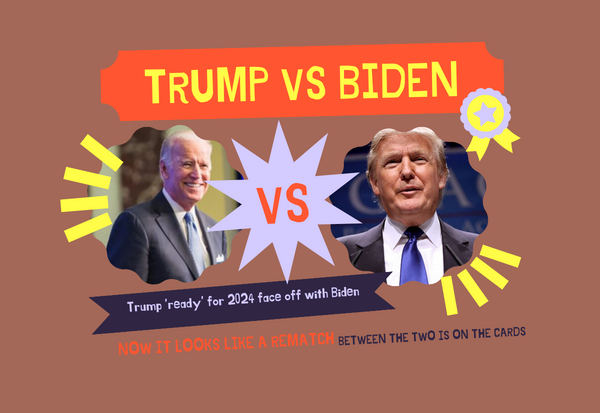The Supreme Court of the US: upholds the absolute powers of former President TRUMP
Supreme Court Upholds Ex-President's Trump Absolute Powers in Landmark 6-3 Decision
 |
| Supreme Court:Trump Absolute Powers Upheld |
In a startling 6-3 decision, the Supreme Court has upheld the absolute powers of a former president, making a mockery of the principle that no man is above the law. This landmark ruling has sent shockwaves through the nation, raising questions about the limitations of executive authority and the role of the judiciary in holding those in power accountable. With this decision, the Supreme Court has not only challenged the bedrock principles upon which our democracy rests, but has also set a dangerous precedent for future leaders. In this article, we will delve into the details of this unprecedented ruling and its potential implications for the future of our nation.
Understanding the Implications of the Supreme Court's Ruling on Ex-Presidential Powers
The recent ruling by the Supreme Court regarding ex-presidential powers has sparked intense discussions and debates across the nation. The decision has brought into focus the question of whether a former president can manipulate the legal system to protect themselves from potential charges and investigations. The ruling has far-reaching implications for the future of our democracy.
One of the key concerns is the possibility of a former president, like Trump, using their executive powers to order the Justice Department to drop any charges against them. This scenario raises serious questions about the integrity of the legal system and the ability to hold powerful individuals accountable for their actions. If this power is indeed granted, it could undermine the foundation of justice and make a mockery of the principle that no man is above the law.
However, it's important to note that the Supreme Court's ruling is conditional.If Trump gets reelected, he may have the opportunity to manipulate the legal system in his favor. This gives rise to concerns about the potential abuse of power and the erosion of checks and balances. If a president can avoid accountability by securing re-election, it further emphasizes the need to bolster the mechanisms that hold our leaders accountable to the law.
The implications of this ruling extend beyond any individual presidency. It highlights the need for a comprehensive reevaluation of the balance of power and the limitations imposed on ex-presidential authority. Our democracy hinges on the principle that no one, not even a former president, is above the law. It is imperative that we foster a legal system that ensures accountability and upholds the integrity of our democracy.
Legal Experts Weigh in on the Recent Supreme Court Decision Regarding Former Presidents
The recent Supreme Court decision regarding former presidents has sparked heated debate among legal experts. The ruling addresses the scope of a president's immunity from criminal prosecution, and the potential ramifications are significant. Many are closely following this decision, as it could have far-reaching implications for future presidents and their accountability for their actions both during and after their tenure in office.
In essence, the majority's decision provides presidents with immunity from criminal prosecution for official acts while in office, but lacks immunity for unofficial acts. However, this does not mean that a former president is entirely immune from facing legal consequences. The court sent the case back to the trial judge to determine which of former President Donald Trump's actions were part of his official duties and which ones were not.
The dissenting liberal justices argue that the majority's decision effectively insulates presidents from criminal liability, and fear that it may set a dangerous precedent. They argue that this could potentially allow a president to engage in illegal activities while in office, secure in the knowledge that they cannot be prosecuted until they leave office. This, in their view, would make a mockery of the principle that no man is above the law.
As the legal implications of this Supreme Court decision continue to unfold, it is clear that the debate surrounding presidential immunity and criminal liability is far from settled. The outcome of this case will undoubtedly have a lasting impact on the relationship between former presidents and the law. Only time will tell how this decision will shape the future of American democracy and the accountability of those who hold the highest office in the land.
Key Takeaways from the 6-3 Supreme Court Decision on Ex-Presidential Powers
In a landmark 6-3 decision, the Supreme Court recently ruled on the extent of ex-presidential powers. The case revolved around the question of whether a former president can be held criminally liable for actions taken while in office. The majority opinion maintains that a sitting president enjoys absolute immunity from prosecution, while a former president possesses a limited form of immunity.
However, the decision does not provide blanket protection for all actions carried out by a former president. While the court acknowledged that a former president can be held accountable for unofficial acts, it emphasized that immunity only applies to official acts. This distinction is crucial in determining whether criminal charges can be brought against a former president.
The dissenting liberal justices voiced their concerns, arguing that the majority's decision effectively shields ex-presidents from criminal liability, potentially allowing them to act with impunity. They fear that this ruling makes a mockery of the principle that no one, not even a former president, should be considered above the law.
As a result of this decision, the case has been sent back to the trial judge, who will now determine which of Donald Trump's actions during his presidency fall under the category of official or unofficial acts. This ruling carries significant implications for future ex-presidents and their potential legal accountability, setting a precedent for years to come.
What Does the Supreme Court's 6-3 Decision Mean for the Balance of Power in Government?
Question that must be answered..


.png)


